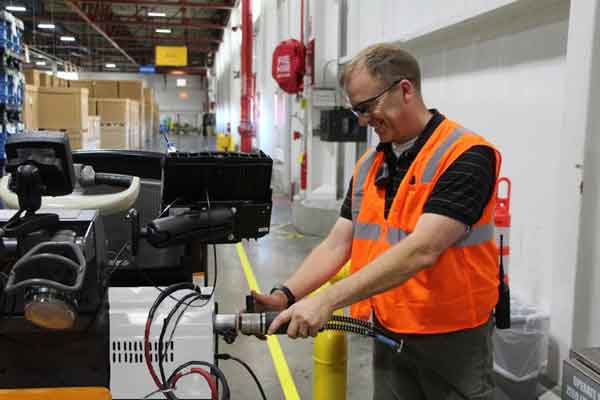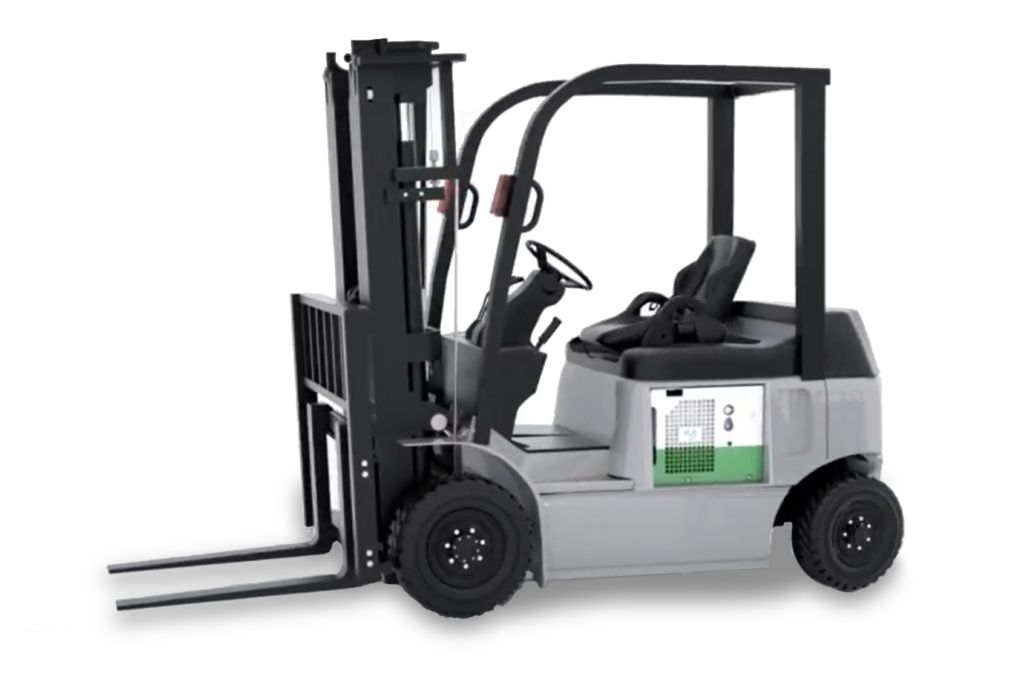Mitigate Inflation – Cut Material Handling Costs with Hydrogen Power
Plug’s leading products have saved companies of all sizes millions of dollars in material handling facility costs.
With inflation at a 39-year high, executives are searching for ways to save their companies’ bottom lines. Hydrogen may have been dubbed the “energy source of the future,” but it’s here now, and some companies have been saving millions of dollars for years thanks to it.
Plug, a leading provider of turnkey hydrogen solutions for the global green hydrogen economy, has been providing hydrogen and fuel cell solutions to material handling customers since 2010. Just a few years after entering the market, our world-class team began providing its innovative solutions to customers after Walmart executives pressed us to make adoption simple for them and other companies. With our customers in mind, our team created new solutions that are now powering a growing number of distribution center fleets for large corporations such as Amazon and Home Depot and smaller ones like FreezPak and Lipari Foods. We have more than 50,000 fuel cells currently in operation. Customers are also supported by more than 165 hydrogen sites and more than 450 active fuel dispensers completing a hydrogen fill every 2 seconds.

Powering Material Handling Industries
When it comes to material handling operations, our team understands the industry well. We understand that labor drives approximately 70% of the overall cost of doing business in a warehouse. This means that any downtime can result in thousands of dollars in losses for the company. The loss of dollars, coupled with skyrocketing prices related to the pandemic, can make or break any size company.
While Plug began with fuel cells, our team soon realized it needed to become more to fully serve our customers. Our largest customer at the time, Walmart, made it clear that adoption of new technology can be difficult for companies, and Plug would need to provide not only the fuel cell power, but hydrogen, and ongoing services as a turnkey offering. Plug stepped up to the challenge. We learned how to manage fuel shortages, price uncertainties, customer experiences, supply chains, and how to grow an industry from the ground up. Customers were thrilled with the expanded offerings that launched in 2014.
Our team also developed an unmatched portfolio of more than 100 fuel cell products utilizing customer feedback during product creation. As a result of listening to customers while developing products, our customers have seen increased productivity, lower operational costs, reduced site emissions, greater production space (no battery room or charging stations required) and significantly reduced peak power demand.

Working With Fuel Cells
Hydrogen fuel cells, electrochemical power generators that combine hydrogen and oxygen to form zero-emission energy, can power everything from forklifts and fleet vehicles to data centers and drones. Because they are a clean and reliable source of renewable energy, hydrogen fuel cells are a smarter and safer option compared to batteries, and have been designed with options to fit all forklift models.
Traditionally, electric material handling vehicles have run almost exclusively on lead-acid or lithium batteries. However, vehicles employing battery power require up to three time-consuming battery changes during each 24-hour period, greatly diminishing a driver’s productivity. Instead of a 15-minute battery swap or 60-to 90-minute fast charge multiple times per day, the fuel cell-powered forklift drives up to a hydrogen fueling station inside the warehouse for a refill that takes less than three minutes, improving facility productivity dramatically.
Whereas, battery performance degradations are amplified in cold environments – a lead acid battery rated for an eight-hour shift in 77 degree temperatures may only last four to six hours in a cold or frozen environment and a lithium-ion battery will see up to 20% degradation. Fuel cells don’t have these issues, being able to run at full power regardless of the temperature for as long as they have fuel, and then quickly refueling, much like a car.
What about the space of battery rooms and fast charging infrastructure? Transitioning to hydrogen fuel cells means those are no longer required, giving companies much-needed warehouse space to expand operations and increase revenue.
What’s Next?
From hydrogen electrolyzers providing green hydrogen both at customer locations and for delivery, to large fuel cells that provide stationary power to offset grid outages and peak energy costs, we work with industry leaders to help them be even more successful as they plan for their future.
While the cost of batteries and electricity continue to rise, hydrogen fuel cells remain affordable. The realization that hydrogen is the energy of the future has also led state and federal governments to provide incentives to companies willing to upgrade their operations for the good of the planet. And, what’s good for the planet happens to be good for your company’s fundamental operations.
Ready to explore how we can help your business? Let’s get this conversation started. Contact us today.